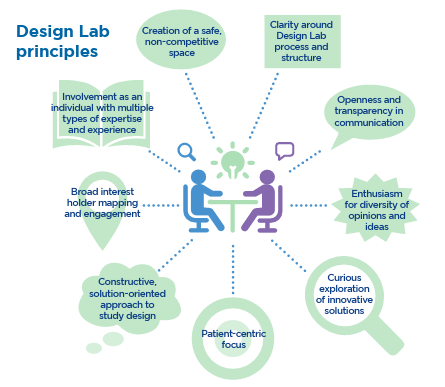Beyond the Numbers
Beyond the numbers, our impact extends to scientific leadership, infrastructure development, and “deeper-dive” studies to assess and improve research processes, operations, and innovations. Selected examples include:
Advancing clinical and translational research
- COVID-19 research. Tufts CTSI’s Clinical and Translational Research Center quickly pivoted to become the primary unit for COVID-19 research at Tufts Medical Center, including activation of two large Remdesivir studies in less than two weeks, other treatment and vaccine studies, and a Tufts CTSI-initiated treatment trial for niclosamide.
- National and international leadership. Examples include:
- Tufts CTSI Associate Director Jonathan Davis, MD, is Co-Director of the FDA/Critical Path Institute’s International Neonatal Consortium to address unmet drug development needs for neonates.
- Tufts CTSI Director of T.5 Capacity in Medical Devices Elazer Edelman, MD, PhD, is the US representative to the international consortium on personal protective equipment with the World Health Organization, UNICEF, and the World Bank.
- Tufts CTSI Dean and Principal Investigator Harry Selker, MD, MSPH, collaborates with US FDA and European Medicines Agency leaders on advanced trial designs, including Efficacy-to-Effectiveness, Efficacy and Effectiveness Too, and N-of-1 trials.
Overcoming barriers to translation
- Identifying challenges and solutions. In collaboration with other CTSAs, we identify factors affecting successful translation. For example, a Tufts-based case revealed how researchers engaged a broad range of stakeholders across multiple arenas–clinical, policy, regulatory, and research (including Tufts CTSI services and mentoring)–to overcome barriers to establishing evidence-based treatment for neonates suffering from opioid withdrawal. Next steps include cross-case analyses to generate generalizable knowledge about translational facilitators, challenges, and solutions.
Fueling innovation
- Clinical trial participation. To enable the Tufts CTSI-initiated treatment trial for niclosamide, we developed a fully remote clinical trial participation platform, which was positively evaluated by participants and research staff (learn more here). Next steps: Our partners at MIT and Maine Medical Center are engineering and testing an enhanced platform design to improve access to research participation in rural, economically disadvantaged, and global settings.
- Research quality. Tufts CTSI led the CTSA Consortium Scientific Review Committee (SRC) Processes Consensus Working Group to develop SRC processes to enhance the quality and feasibility of biomedical/clinical research. Our 10-CTSA pilot study of the consensus-based processes demonstrated feasibility across organizations, positive impact, and conditions for optimal benefit.
Growing collaboration and engagement
- Broadly-engaged team science. To make translational research more transparent, efficient, and responsive to health needs, our faculty leaders at partners RAND and Tufts Medical Center developed a fit-for-purpose model of broadly engaged team science for all translational phases, disseminating in journal articles (learn more here), a book, a resource guide, web pages, a graduate course, and trainings. We are currently evaluating investigator perspectives on implementation.
- Reaching rural communities. Our partner The Jackson Laboratory developed the first genomic medicine network in rural Maine and, together with investigators at our collaborator Maine Medical Center, demonstrated its feasibility and effectiveness with oncology patients and clinicians. This network improves patient access and clinical practice related to genomic testing.
Delivering informatics solutions
- Clinical data. Our Informatics Program Co-Director Andrew Williams, PhD, participated in the Observational Health Data Sciences and Informatics (OHDSI) collaborative to develop the technical and governance infrastructure to improve evidence generation from clinical data, and together with our partner Northeastern University launched the OHDSI Center at the Roux Institute to foster reproducible research with open science.
- Timely adoption of informatics solutions. To aid a data-driven response to COVID-19, Tufts CTSI was among the first CTSAs to submit data to the National COVID Cohort Collaborative (N3C).
Training the full team
- Clinical trial operations. In 2021, Tufts CTSI developed and demonstrated the effectiveness of the Tufts Blue Star Investigator Certificate Program for teaching the practical intricacies of conducting safe and ethical research. Next steps are to adapt content for dissemination and implementation at other organizations and with other research team members, and to expand mentoring for clinical research operations.
- Workforce of the future. Tufts CTSI collaborator, Massachusetts Biotechnology Education Foundation (MassBioEd), developed the Aligned Curricular and Career Experiences for Secondary Science (ACCESS) program to facilitate expansion of the life and health sciences workforce. Tufts CTSI is conducting a multi-year quasi-experimental evaluation of its effectiveness in a public school district in metro Boston.



